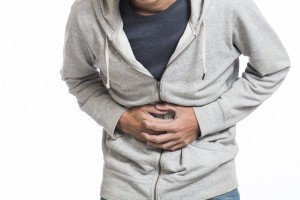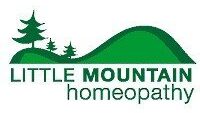
Use Homeopathic Remedies for Acute Diarrhea, Nausea and Vomiting
Friday, October 22, 2010 by: Sonya McLeod
Originally published in Natural News
Acute cases of diarrhea, nausea and vomiting due to a viral or bacterial infection can be effectively treated at home using single homeopathic remedies. Diarrhea, nausea and vomiting caused by overindulgence in food or drink can also be treated homeopathically. Most of the remedies mentioned in this article can be found in a standard Homeopathic First Aid Kit or at your local health food store. They are completely natural, easy to administer, and have no side effects. All the remedies mentioned below should be used in a 30C potency (strength). Look for “30C” written at the end of the given remedy name (e.g. Arsenicum Album 30C).
Arsenicum Album: The first remedy to try in cases of food poisoning or traveler’s diarrhea. There is vomiting and diarrhea. People needing this remedy are weak, chilly, anxious and thirsty.
Nux Vomica: A great remedy for nausea and vomiting, especially after alcoholic drinks or overindulging in food. It’s known as “the hangover remedy.”
Colocynthis: A good remedy for diarrhea anytime there is abdominal pain that is better from pressure and bending double.
Ipecacuanha: Good for persistent nausea, with or without diarrhea, which is not relieved by vomiting.
Podophyllum: Another common diarrhea remedy. The stool is profuse and offensive smelling. The stools may be yellowish or green and are often completely liquid, and the bowel movements can come very frequently.
Bryonia: Diarrhea and/or vomiting that is worse from the slightest motion. This person is irritable, wants to be left alone and feels warm.
Since homeopathy is safe and non-toxic, the remedies can be given to pregnant women and children. Dosage is the same for adults and children: a few pellets dissolved in the mouth, taken preferably 15 minutes away from food or water. The remedy can be repeated every half hour for the first few doses, then a few times per day thereafter. Remedy response is very fast in cases of acute diarrhea and vomiting, so if there is no response after waiting a few hours, it means that you have chosen the wrong remedy.
Dietary Precautions
Avoid heavy, rich foods and sweets. Eat foods that are easy to digest such as yogurt, bananas, white rice, or cottage cheese. Drink lots of diluted juice, vegetable broth, or rice water to avoid dehydration.
Sources
“Homeopathy for Children” Gabrielle Pinto and Murray Feldman, 1996.
“Everybody’s Guide to Homeopathic Medicines” Stephen Cummings and Dana Ullman, 1997.
“The New Synoptic One” Frans Vermeulen, 2001.
Book an acute consultation online. Or contact the clinic to make an appointment in cases of chronic nausea, diarrhea and/or vomiting.
Scientific Studies Prove the Effectiveness of Homeopathy for Acute Diarrhea
Abstract
OBJECTIVE: Acute diarrhea is the leading cause of pediatric morbidity and mortality worldwide. Oral rehydration treatment can prevent death from dehydration, but does not reduce the duration of individual episodes. Homeopathic treatment for acute diarrhea is used in many parts of the world. This study was performed to determine whether homeopathy is useful in the treatment of acute childhood diarrhea.
METHODOLOGY: A randomized double-blind clinical trial comparing homeopathic medicine with placebo in the treatment of acute childhood diarrhea was conducted in León, Nicaragua, in July 1991. Eighty-one children aged 6 months to 5 years of age were included in the study. An individualized homeopathic medicine was prescribed for each child and daily follow-up was performed for 5 days. Standard treatment with oral rehydration treatment was also given.
RESULTS: The treatment group had a statistically significant (P < .05) decrease in duration of diarrhea, defined as the number of days until there were less than three unformed stools daily for 2 consecutive days. There was also a significant difference (P < .05) in the number of stools per day between the two groups after 72 hours of treatment.
CONCLUSIONS: The statistically significant decrease in the duration of diarrhea in the treatment group suggests that homeopathic treatment might be useful in acute childhood diarrhea. Further study of this treatment deserves consideration.
Abstract
OBJECTIVE: To investigate whether the finding in a previous study that homeopathic medicines decrease the duration of acute diarrhea in children could be replicated in a different study population.
DESIGN: Randomized, double-blind, placebo-controlled trial.
SETTING: Private, charitable health clinic in Kathmandu, Nepal.
SUBJECTS: A consecutive sample of 126 children, 6 months to 5 years of age, who presented during April through June, 1994, with more than three unformed stools in the previous 24 hours.
INTERVENTION: Children received either an individualized homeopathic medicine or placebo, to be taken one dose after each unformed stool for 5 days. Parents recorded daily stools on diary cards, and health workers made home visits daily to monitor children.
OUTCOME MEASURES: Predefined measures were based on the previous study: (1) duration of diarrhea, defined as the time until there were fewer than three unformed stools per day, for two consecutive days, and (2) Average number of stools per day for each group.
RESULTS: Of the 126 children initially enrolled, 116 completed treatment. The mean number of stools per day over the entire 5-day treatment period was 3.2 for the treatment group and 4.5 for the placebo group (P = 0.023). A Kaplan-Meier survival analysis of the duration of diarrhea, which included data from all patient visits, showed an 18.4% greater probability that a child would be free of diarrhea by day 5 under homeopathic treatment (P = 0.036).
CONCLUSIONS: These results are consistent with the finding from the previous study that individualized homeopathic treatment decreases the duration of diarrhea and number of stools in children with acute childhood diarrhea.
In this meta-analysis (an analysis carried out to determine overall trends in a group of similar studies) three double blind clinical trials of diarrhoea in 242 children aged 6 months to 5 years were analysed as one group. The children received either an individualised homeopathic medicine or a placebo, for 5 days after each unformed stool. Records were kept by parents and the duration of diarrhoea was defined as the time until there were less than 3 unformed stools per day for 2 consecutive days. Diarrhoea ceased in those taking homeopathic medicines after 3.3 days and after 4.1 days in those using placebo.
